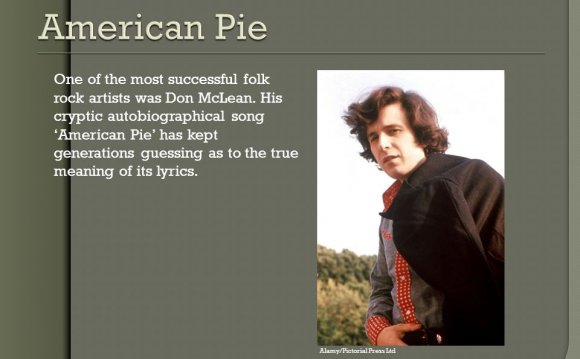
The members of the Canadian rock group Sugluk saw their small, remote village electrified in more ways than one. Located in the northernmost tip of Quebec, just outside the Arctic Circle, their town—previously called Sugluk as well—consisted primarily of tents and igloos, with the first few permanent structures and power lines added in the 1960s. Even after that initial modernization, most teenagers traveled down to Kuujjuarapik or even as far south as Quebec City for school. The four musicians returned home with loads of pop records by the Beatles, Hendrix, and others, which they used as textbooks to teach themselves how to play their instruments and write their own songs. Soon they were playing community dance halls around the region, and their reputation grew to the point that the Canadian Broadcasting Corporation recruited them to record two 7" singles in 1975. That remains the extent of their catalog, although Sugluk continued touring into the 1980s and reunited in 2013.
Of their handful of extant tracks, three are included on Light in the Attic’s new comp Native North America (Vol. 1): Aboriginal Folk, Rock, and Country 1966-1985. Those songs show a band developing an identity even as it stamps popular folk-rock with its own personal flourish. "Fall Away" opens with a thundering drum fill and a shaky one-note bass groove, setting the stage for singer George Kakayuk’s bittersweet tale of thwarted romance. The song has the folksy grit of Neil Young, but the rambunctious energy of the Flamin’ Groovies. Guitarist Tayara Papigatuk takes over on "I Didn't Know", which sounds so loose and rambling the rhythm section might be the only thing holding it together. Showing their range, "Ajuinnarasuarsunga" (which translates from Inuktitut as "I Tried Hard") is a folksier number defined by the band’s careful harmonies and a lovely piano rambling in the background. "Though the band was not 100 percent satisfied with these raw one-take recordings, " writes Kevin "Sipreano" Howes in the Native North America liner notes, "they remain one of the earliest examples of original Inuit rock music recorded in Canada and carry an exceptional spiritual weight."
If Sugluk emerge as one of the stars of Native North America, it’s largely because you can hear a very particular struggle in their songs—not necessarily to be heard by a mainstream audience, but to define themselves through some combination of Native American culture and popular music. That endeavor to some degree informs every song here, as artists from all over Canada calibrate their own equations for personal expression. Some, like the group Sikumiut, sound like they could play shows alongside Young or Joni Mitchell. Others, like Morley Loon and Shingoose, barely nod to pop music at all. But almost everyone on Native North America writes and sings about the impulse to both imitate others and distinguish oneself. Gordon Dick, a member of the Lil’wat Nation and a self-taught guitarist, even gives a name to this music: "I dreamed I was in a rock group, playing on a Saturday night. Our name wasn’t like the Beatles, but I found an old Indian name: Siwash Rock."
Native North America might have easily buckled under the weight of good intentions. Howes, a Toronto-based vinyl collector, DJ, and blogger, spent years scouring record stores and flea markets all over Canada to locate these rare records, then tracked down and researched the unsung artists behind them. That process by itself is important, as it provides valuable information on lesser-known chapters in the history of Canadian rock, but that alone doesn’t ensure a 2xCD/3xLP set, much less the first in what appears to be a multi-volume series, will be listenable or engaging as anything other than an artifact. Fortunately, Howes does not conflate the idea of the music—its origins, its politics, or its import—with the music itself. He has curated the tracklist not only to emphasize the diversity of the artists and their ideas, but to reveal the vibrancy and energy of this large and largely undocumented scene.
Native North America likewise shows the extent to which popular music welcomes and nourishes marginalized perspectives; the form is endlessly adaptable and fundamentally democratic—even when democracy itself is not. Most of these artists faced prejudice or hardship of varying severity, which naturally informed their music. "Police they arrest me, materialists detest me, " Willie Dunn sings on "I Pity the Country". "Pollution it chokes me, movies they joke me." The impression is one of forced isolation, as though society has stripped away every refuge that might comfort the singer—except music, that is. It’s a startling opener to the comp, especially since Dunn’s steadfast voice conveys resignation more than anger. He’s not fighting the system, but pitying the sad men who perpetuate their own unhappiness.
"I Pity the Country" is not too different from the politically-motivated folk, rock, and country coming out of the North American mainstream at that time. Many of the artists on Native North America were weaned on early country & western, in particular the lonesome ballads of Hank Williams, but their music has more in common, both sonically and politically, with that of Buffy Sainte-Marie, Bob Dylan, and Johnny Cash (whose 1964 album Bitter Tears looms large over this set, even if it is never mentioned). Tribal drums become a rock'n'roll rhythm section on Lloyd Cheechoo’s "James Bay" and "Tshekuan Mak Tshetutamak" by Groupe Folklorique Montagnais, a powerful means of announcing the artists’ aboriginal roots. The Chieftones (who billed themselves as "Canada’s All Indian Band") kick off "I Shouldn’t Have Did What I Done" with a drum pattern practically quoted from some cheesy old Hollywood Western, but it turns out to be more than just a marketing ploy as the band’s energetic garage-rock attack subverts any expectation of stoicism associated with Aboriginal stereotypes.
RELATED VIDEO











